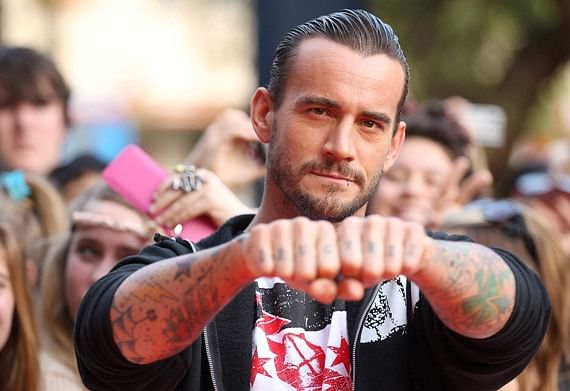
CM Punk talks 'Fake' wrestling, Politics in the WWE, more

In a recent interview with Sports Illustrated’s Extra Mustard blog, CM Punk looked back at his career in pro wrestling and his transition into MMA. The entire interview can be found at this link. Below are highlights:
SI: Your head is in a different place. Your body, too, I’m guessing. How banged up do you get wrestling?
CMP: When I stopped wrestling I literally lay in bed for two weeks. In a lot of ways I’m still decompressing for leading that life. I definitely went through a transitional period, probably with some depression mixed in—waking up and not knowing what to do. Normally you’re waking up to catch a plane, in a different zone. But yeah, physically, you take a beating.
SI: Do you feel like you’re competing in WWE?
CMP: It’s definitely a competition. Backstage is so shark-infested and political. It’s almost comical. A lot of people are more interested in the backstage goings-on than what they see on television. A lot of ways it’s more fascinating. It’s a competition for sure.
SI: Do you have a say over storylines?
CMP: Yeah, eventually. But I was one of the few. And even in that, I could make a recommendation but at the end of the day, it’s Vince’s company and his say.
SI: Was there one catalyzing moment: I want to fight MMA?
CMP: I’d say there were a lot of little moments. I’d accomplished pretty much all I wanted. I was getting tired of being on the road, tired of getting beat up. Most of the big reasons had to do with my health. Like getting knee surgery and then being told, ‘You need to be in the ring in three weeks.’ I’m like, ‘That’s great. I can suck it up and be the tough guy. But wouldn’t it be smarter to give me six weeks?’ Stuff like that. Again, it’s so cutthroat and political backstage. I always felt like I was fighting. I’d much rather just lock the cage door and really fight it out.
SI: Not a lot of grey area in MMA—
CMP: Exactly. In pro wrestling, it’s fake. People always get offended by that word. ‘No, we like to say it’s pre-determined.’ For whatever reason, people get angry at fake; pre-determined eases the blow? It’s fake. At the end of the day it doesn’t really mean anything. So after a while, it was, ‘Let’s just really fight and see what happens.’ Now I get to.
SI: What made you a good pro wrestler?
CMP: Well, that’s another thing in that phony world. What does it mean to be a good fake wrestler? That’s an identity crisis that I think I struggled with. It doesn’t matter if you’re the best; someone else picks who they want in the top spot.
SI: But were you particularly adept at the choreography—
CMP: I think I connected with the people. And the people drive the sport. If they don’t like—or they don’t care about you and sit on their hands or take a piss or get popcorn when you’re on—that’s when you’re no good. But if you can captivate a room, whether it’s 300 or 80,000, that’s when you’re good.
SI: Go back to the politics in WWE. That’s among fighters?
CMP: You wonder, Did you really punch me in the face? You say it was an accident but I know you and I think you’re a p—– and I’ve seen you do this to other people. Are you doing this to me? Did you kick me in the ribs as hard as you can? No, no I would never do that! In [MMA] I know the other guy is going to try and kick me in the ribs as hard as he can. No, not maliciously. But I’ve been in the [wrestling] ring with plenty of guys where I’m wondering, Is he is trying hurt me? Is he mad because he is losing? I don’t have to deal with that bulls— any more. It’s a godsend.